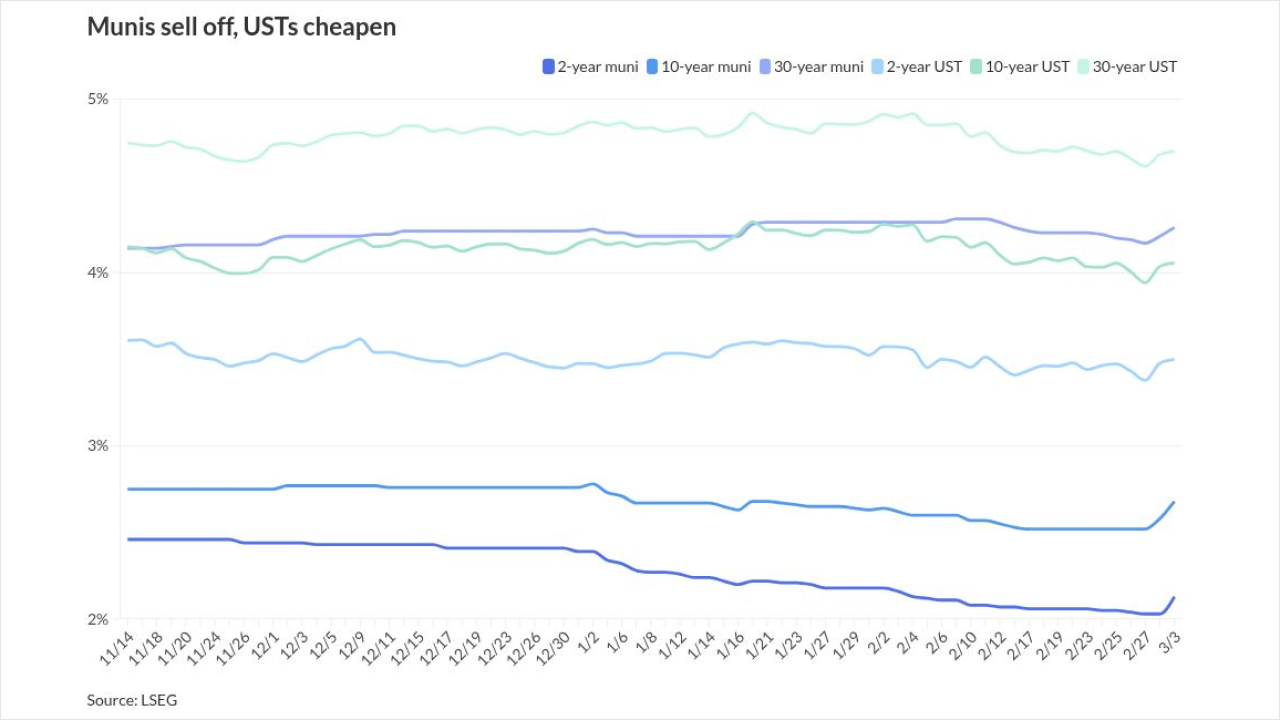Banks accused by two major cities of an anti-competitive conspiracy in the variable-rate market have asked a federal judge to toss the lawsuit, calling the claims "implausible."
Attorneys representing eight large banks filed the motion to dismiss and a memorandum of law in support of the motion in U.S. District Court for the Southern District of New York Tuesday. Philadelphia and Baltimore are jointly suing, claiming that the banks colluded in the setting of interest rates for variable-rate demand obligations issued by states and localities. The accused banks are, or are affiliates of, Bank of America, Barclays, Citigroup, Goldman Sachs, JPMorgan Chase, Morgan Stanley, RBC, and Wells Fargo.
“Plaintiffs fail to identify a single agreement among defendants regarding a single VRDO interest rate,” lawyers for the accused banks said in support of the motion. “Nor do they identify any specific communications among defendants that allegedly furthered the purported conspiracy. The complaint spends 70 pages attempting to cobble together a convincing story of a massive long-term conspiracy, but for several reasons, it fails to plead a ‘plausible’ conspiracy.”

While Philadelphia and Baltimore initially filed their lawsuits separately in federal district court for the Southern District of New York, the court ordered the lawsuits consolidated because they are so similar. The municipalities’ class action suit is closely related, but not identical, to a series of state-level false claims lawsuits by Minnesota-based municipal advisor
In those cases, where alleged damages have now climbed to some $1.6 billion, the legal argument turns on whether the banks committed fraud in purporting to keep interest rates as low as possible while actually keeping them high. The antitrust suit turns on the existence of a conspiracy to achieve that end.
The motion to dismiss largely rests on the defendants’ claim that the complaint fails to rise to the level prior court decisions have said is necessary to show a conspiracy. Among the case law cited was Bell Atlantic Corp. V. Twombly, a 2007 U.S. Supreme Court decision that found that an antitrust complaint must include facts showing that it is “plausible” that the parties conspired not to compete, rather than merely showing that they behaved similarly.
In this case, according to the defendants’ lawyers, the complaint only shows that VRDO rates “clustered” in certain time periods and only alleges to show that the banks “shared information” about their VRDO businesses, not that that made specific agreements to fix rates. The complaint further is barred by a four-year statute of limitations, the defendants claim.
The Philadelphia and Baltimore complaint claims “insiders” at the defendant bankscorroborated the existence of an anti-competitive conspiracy. The cities allege the scheme was executed to allow banks to avoid having to remarket the VRDOs while also making them more attractive to money market funds that buy variable-rate debt, many of which are also run by those same banks.
Market participants have been closely watching the development of the VRDO suits, which call into question the integrity of the whole variable-rate market. Sources have said the Philadelphia and Baltimore lawsuit is especially significant because it was brought by two municipalities rather than an individual, and because the firm of Quinn Emanuel Urquhart & Sullivan is involved for the plaintiffs. The firm is among the largest litigation firms, backed by millions of dollars and resources to bring to bear at trial.
Ultimately it will be up to a federal judge to decide whether the complaint is sufficiently detailed to survive the motion to dismiss. The false claims suits filed by Rosenberg have so far survived challenges, particularly in Illinois, but while predicated on the same conduct those suits are subject to a different set of legal standards.
If the motion to dismiss is denied, the case would continue proceeding to trial until the two sides reach a settlement agreement.





